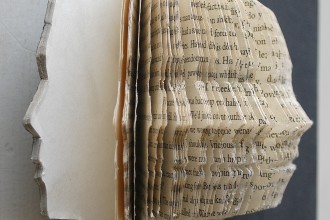Zoltán Böszörményi, a Romanian-Hungarian writer, has been widely published as a novelist and poet. Most recently he was honored with the Attila József Prize as well as the Gundel Art Award for his novel, ‘The Night is a Soft Body’. In the latest installment of our Author of the Month series, he talks to Constance A. Dunn about hunger building strength, escaping to Canada, and how in creative writing, ‘fantasy and imagination are the main ingredients, the flour and water of the dough.’
Being Romanian-Hungarian in South Transylvania, you’ve lived in a borderland where two peoples occupy the same land with two distinct languages, cultures, even giving cities different names – Kolozsvár or Cluj-Napoca – how, in your opinion, has this duality expressed itself in your writing?
I was born in the western part of Transylvania, in the city of Arad, which is 15 miles from the Hungarian border. In fact, my city of birth was part of the Austro-Hungarian Empire. Transylvania was annexed to Romania after the end of WWI. Hungary is the only European country which lost two thirds of its territory after a war. Luckily as a three-year-old kid I learned the Romanian language, and I spoke it fluently when I started my school years.
Being bilingual was a normal state of existence. It helped me to integrate into a diverse society, to enjoy a different culture of Latin origin. However, we were never taught in school a true history. All our history books were distorted, full of lies. Even today the school books do not reflect the real events, as they happened. Thus almost half of my life I lived in ignorance. After my escape from my country of birth, I came to realize the importance of being Hungarian in Romania. Fathom this: after all hardships I endured before, I arrived in Canada in 1984 a culturally rich man. It took me another twenty long years to return to writing. (I published my first poems and short stories when I was eleven years old.) Curiously enough, my fiction writing rarely makes reference to my old country. The short story you published a few weeks ago is one of these exceptions. I loved writing “The Investigation†because I had first-hand knowledge of the story.
I returned to writing long after I stopped being hungry. Jack London in ‘Love of Life’ describes being hungry as forcefully as no other writer before and after him. But he did not experience Bud’s story. Hence he was able to create powerful images of survival. Regarding my experiences, I never considered that hardship and deprivation can be a driving force for my writing.
Hungriness does not make you necessarily angry. But it does make you stronger. More determined to fight and overcome your weaknesses.
In a previous interview with Tamás Kerekes you said, “My thoughts and thus my work were shaped by some kind of a universal agony and despair, and it took me a long time to break out of their spell.†Do you think you’ve broken that spell with your foray into philosophical prose?Â
Philosophy takes me into the outer space of my mind, where my being surveys myself as a cognitive being. It is an immense playground for metaphysical interpretations. We always want to be sure about things, we crave certainty since we are empirical creatures. This is coded into our DNA. I strongly believe writing is empirical. We can touch it, smell it, kick it. In creative writing fantasy and imagination are the main ingredients, the flour and water of the dough. I resort to philosophy only to rescue my thoughts.
The Carpathian Basin plays a big part in your storytelling, including our Story of the Week, ‘The Investigation’. I remember the empty warehouses, closed mines, and the wild dogs in the mountains on my own visit. Did growing up in this region shape that early despair? And, if so, why was it important to return?
I came across the story by accident. It was a priest who introduced me to the events which happened a few months earlier. I knew the area, I had been there once on a trip. A mythical place, tall pine trees, mountainside slopes, wandering bears, warblers. The perfect place for eternal happiness. And then the tragedy struck. I relived the emotions of those who lost the kid. Their numb soul, their silent despair, their unfathomable hope. It burned my mind, tore my heart apart.
Your work reflects a cultural paradigm in the Balkans that I’ve always admired, to use a Romanian proverb “adevÄrul se spune glumind†(“a joke’s a very serious thingâ€). In “The Investigation†you present us with a situation that is both absurd and horribly tragic, then you don’t give us a clear resolution. Is this an intended metaphor?Â
I could not give a clear resolution. I did not intend to do so. I did not consider myself a judge, did not want to direct or cut short the threads of the event. I wished to be as close to reality as possible. Nobody knows what happened. Whether the dogs, or the bear ate up the kid. Both could have happened. I only wished to bring life back to that poor child.





